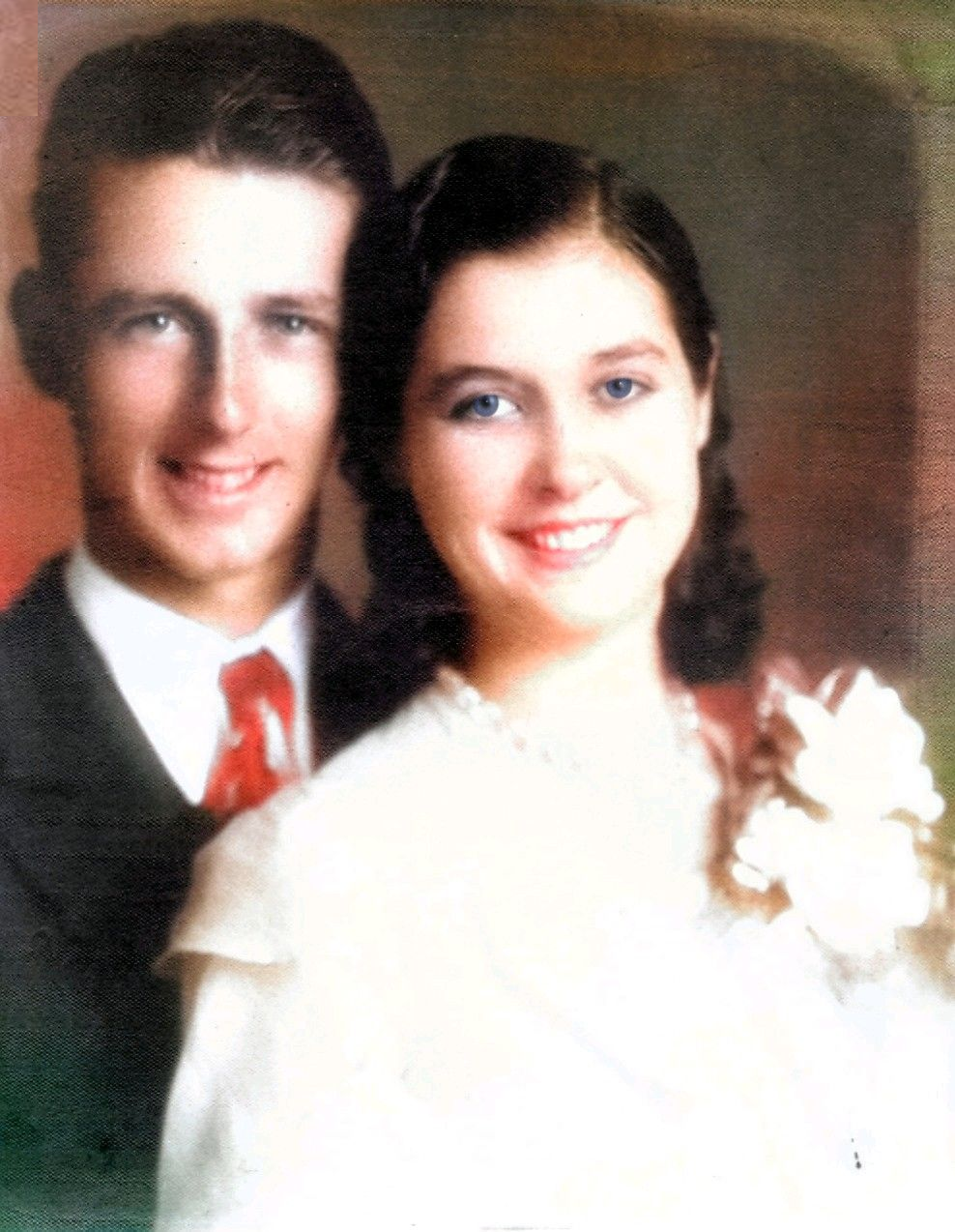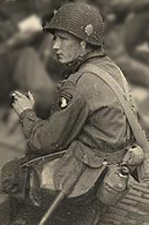Joseph Liebgott

Joseph Liebgott 39103809 US Army Airborne was one of the original Toccoa men of Easy Company 506th parachute infantry regiment 101st airborne division. He was portraited by Ross McCall In the TV Mini Series Band of Brother.
Liebgott was born on May 17, 1915 in Lansing, Michigan, he was the son of Joseph Liebgott Sr. and Mary Liebgott, He was the oldest of six children. His parents, were immigrants from Austria. Joseph Liebgott was raised as a Roman Catholic and attended Catholic school. He grew up in Oakland, California. He finished 2 years of high school and worked a variety of jobs, mostly helping his father in their barber shop. He listed his occupation as “cook” in his enlistment records. He enlisted in the Army on September 9, 1942, in San Francisco. He volunteered for the Airborne, finding his way to Easy Company of the 506th Parachute Infantry Regiment at Camp Toccoa, Georgia.
As the 101st Airborne prepared to jump for the invasion of Normandy, Liebgott used his skills he learned at his fathers barber shop and along with Forrest Guth gave haircuts to the men of the 101st Airborne for 15 cents per head. Many of the men either had their heads shaved or got Mohawks.
Liebgott Jumped into Normandy, he participated in the Brécourt Manor Assault, manning a machine gun with Cleveland O. Petty. For this action, both men were awarded the Bronze Star.
He made the jump into the Netherlands. He received minor wounds on 5 October 1944, at about 0330, when Easy was on line on “The Island”, in the Netherlands, on the south side of the Rhine. While on patrol, the group that he was with encountered a German patrol, and an incoming grenade wounded him (in the arm) and Roderick Strohl slightly, while James Alley and Joseph Lesniewski were wounded more severely. Alley had thirty-two wounds in his left side, face, neck, and arm, while Lesniewski got hit in the neck by shrapnel. Later, after Easy Company commanding officer Richard Winters led the charge up on the dike, the German artillery opened up on The Crossroads and, in return, American artillery returned fire. One of the American shells exploded near Liebgott, wounding his elbow. He was noted by Winters as being an extremely good combat soldier and loyal friend; however, Liebgott had a rather rough attitude towards prisoners. After the battle at the crossroads on “The Island” in October 1944, Winters handed over 11 German prisoners to Liebgott to be taken back to Battalion command post. Liebgott was ordered to drop all his ammunition but one round, so as to ensure that the German prisoners made it back. Liebgott was nearing a breaking point at Bastogne during the Battle of the Bulge. He was pulled off the line and made a Command Post (CP) runner. After a few days, Liebgott returned to the line to be with his buddies, but his feelings of stress and tension also returned. This time, he was assigned to 101st Division Headquarters S-2 (intelligence), due to his ability to speak German and interrogate the prisoners.
On January 15, 1945 Sgt. Hale “was one of the first into Rachamps. Hale and Liebgott ducked into a barn, where they surprised and made prisoners of six SS officers. Hale lined them up nose to nose and told them that if he and Liebgott got killed they were going to take the Germans with them. Hale covered them with his Tommy-gun to make the point. A shell exploded outside. Hale was standing by the door. He got hit by a piece of shrapnel and went down. An SS officer pulled his knife from his boot and slashed Hale’s throat. He failed to cut an artery or sever the windpipe, but did cut the esophagus. Blood gushed out. Liebgott shot the officer who did the cutting, then the others. Medic Roe got sulfa powder on Hale’s wound.
After Victory in Europe day, while on occupation duty in Austria, Easy Company commander Ronald Speirs assigned Liebgott, along with John C. Lynch, Don Moone, and Wayne Sisk, to “eliminate” a Nazi who had been the head of a labor camp. When they found the man, Liebgott interrogated him for about thirty minutes, confirming that he was the man they wanted. They drove him to a ravine and Liebgott shot him twice. Wounded, the Nazi ran up a hill and Lynch ordered Moone to shoot him. Moone refused, and Sisk killed the man with a single, fatal rifle shot. Joseph Liebgott after the war worked as a barber until his death. He had 8 children, Joseph Liebgott died on 28 June 1992 in San Bernardino, California.
